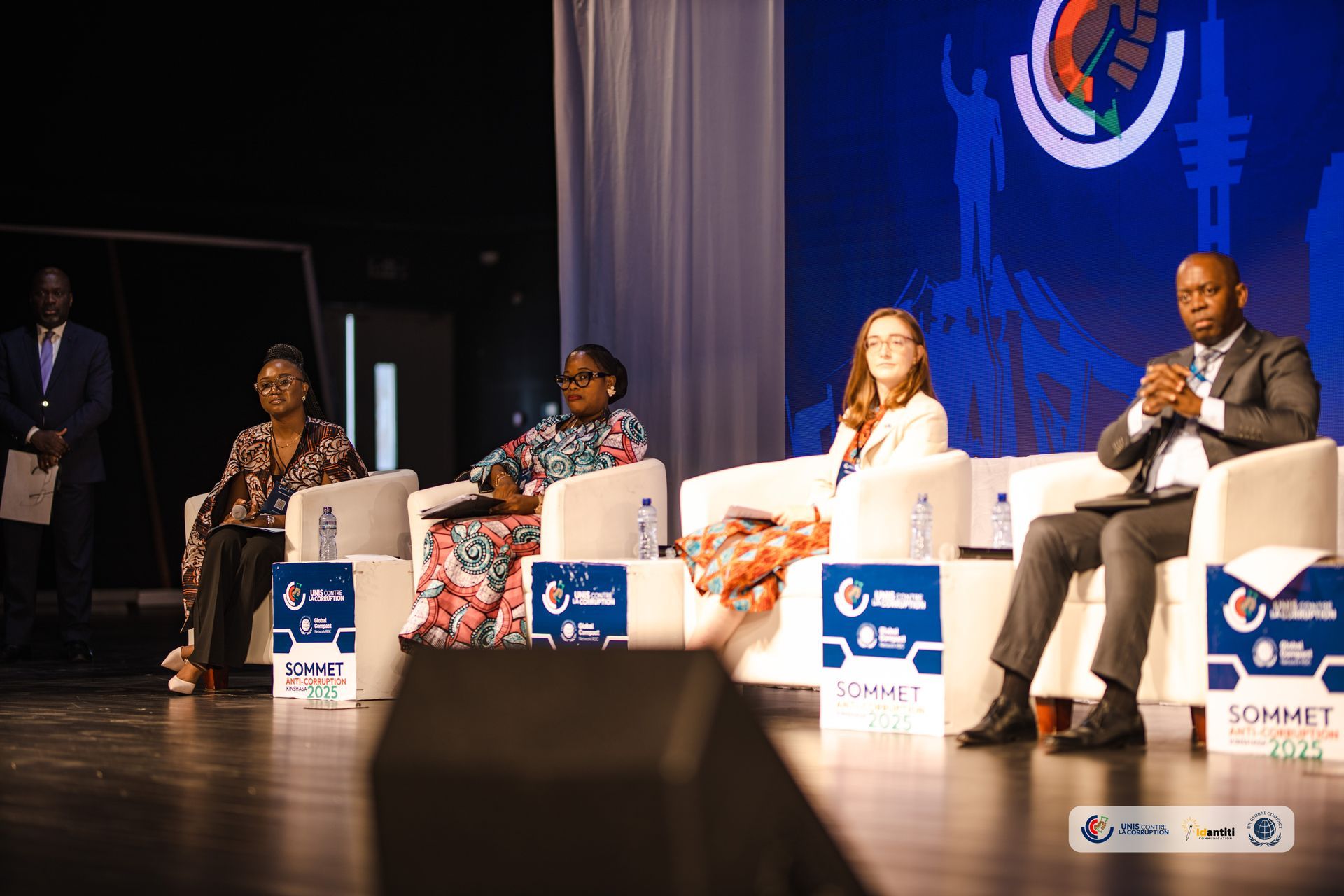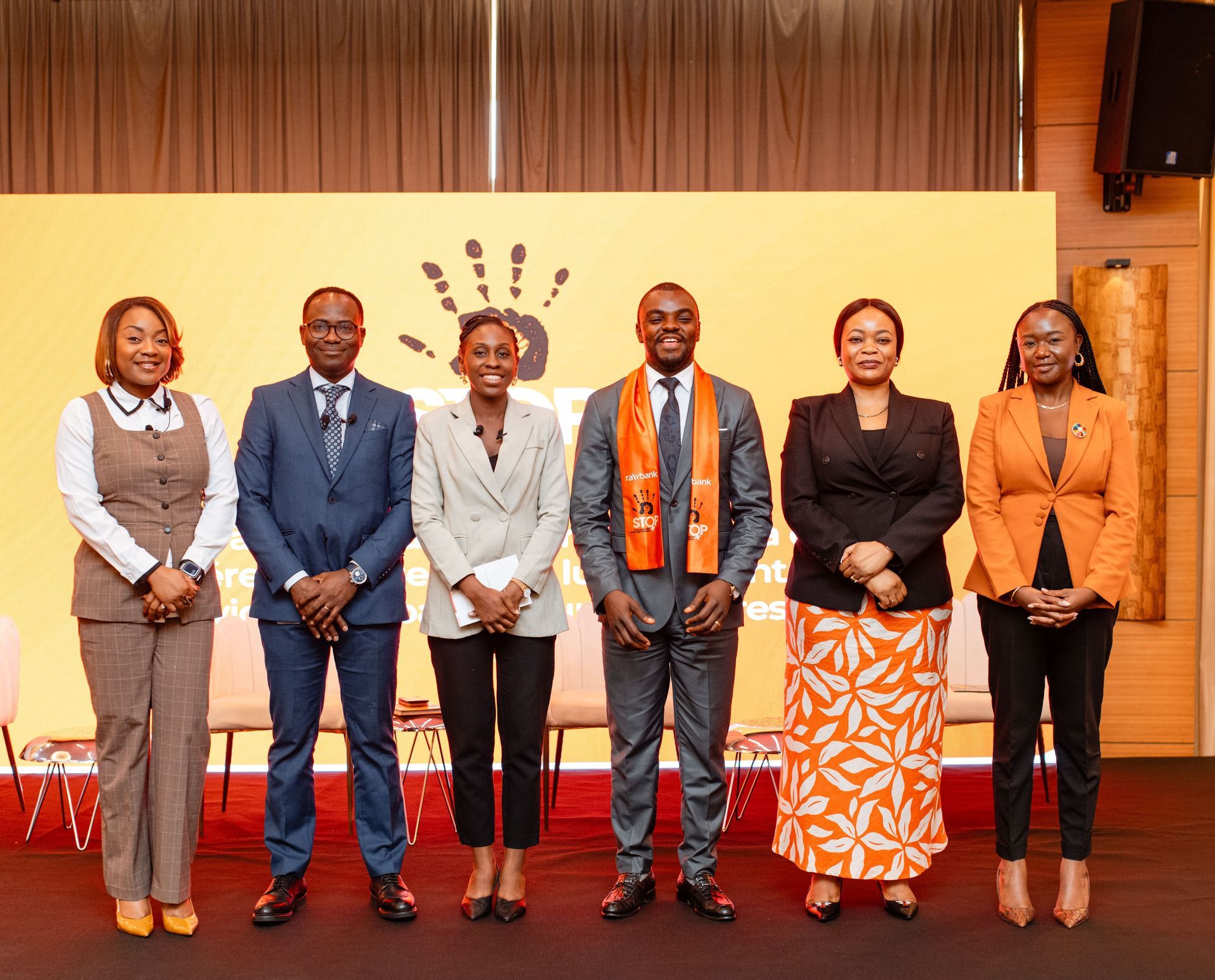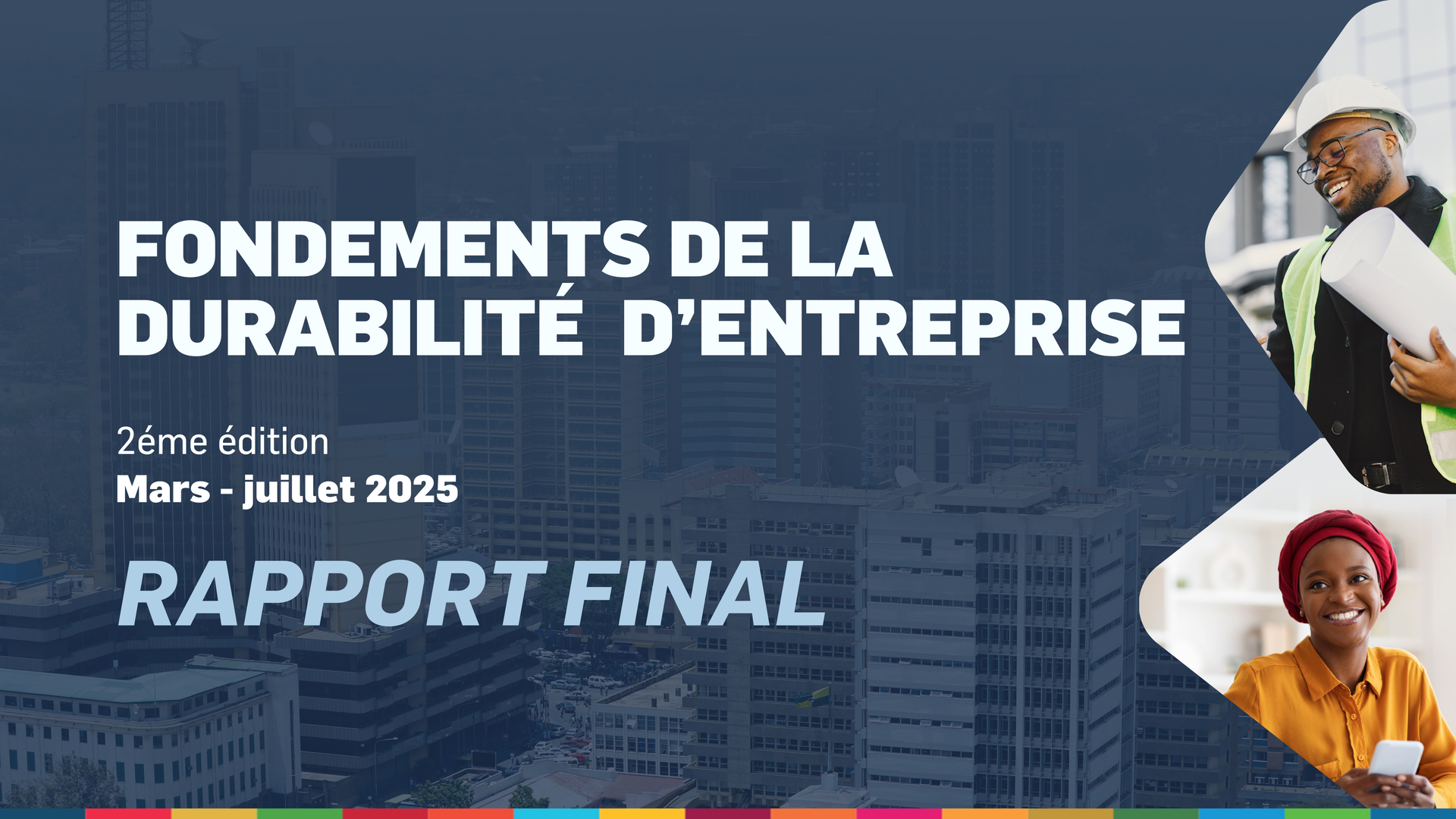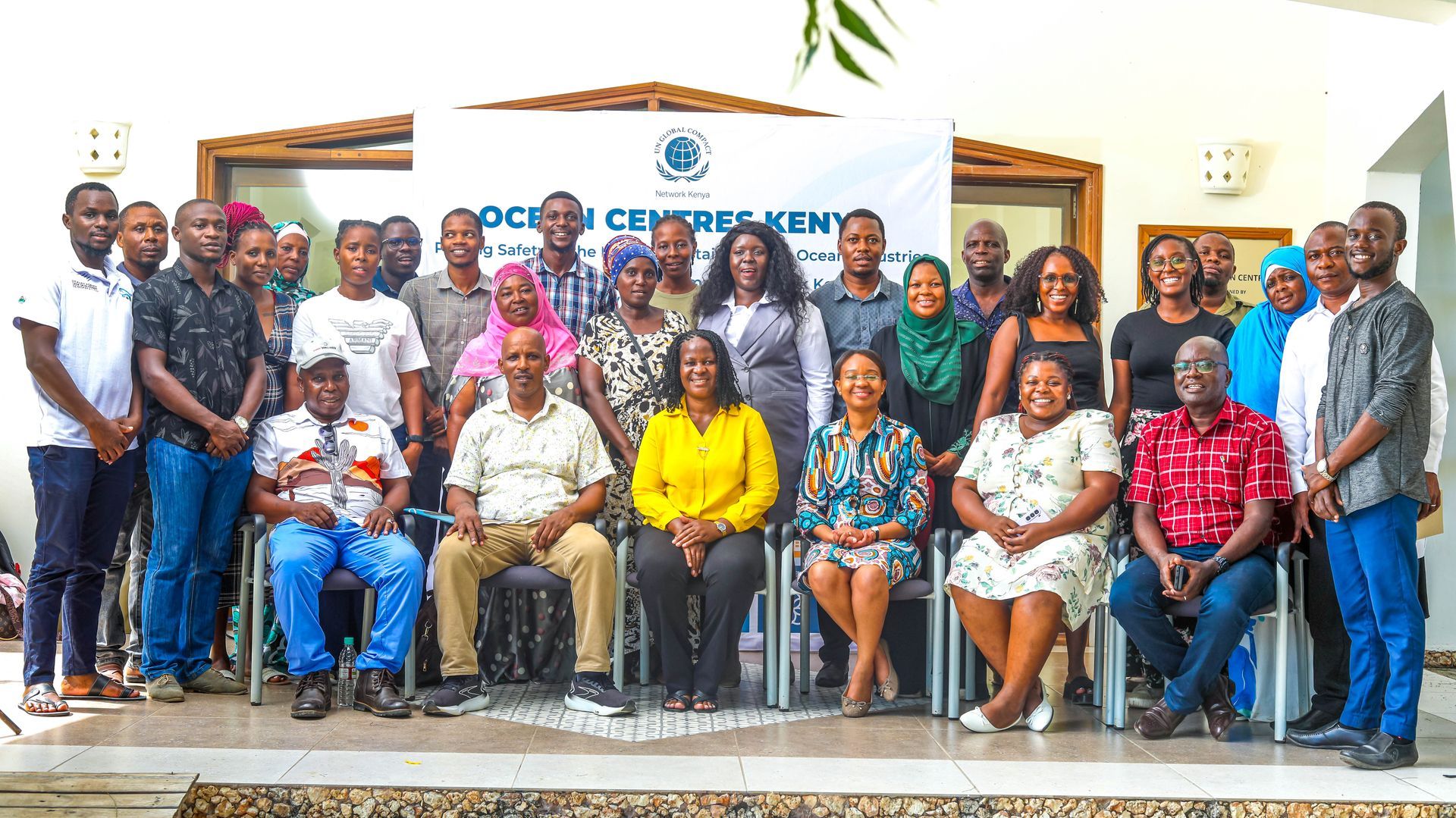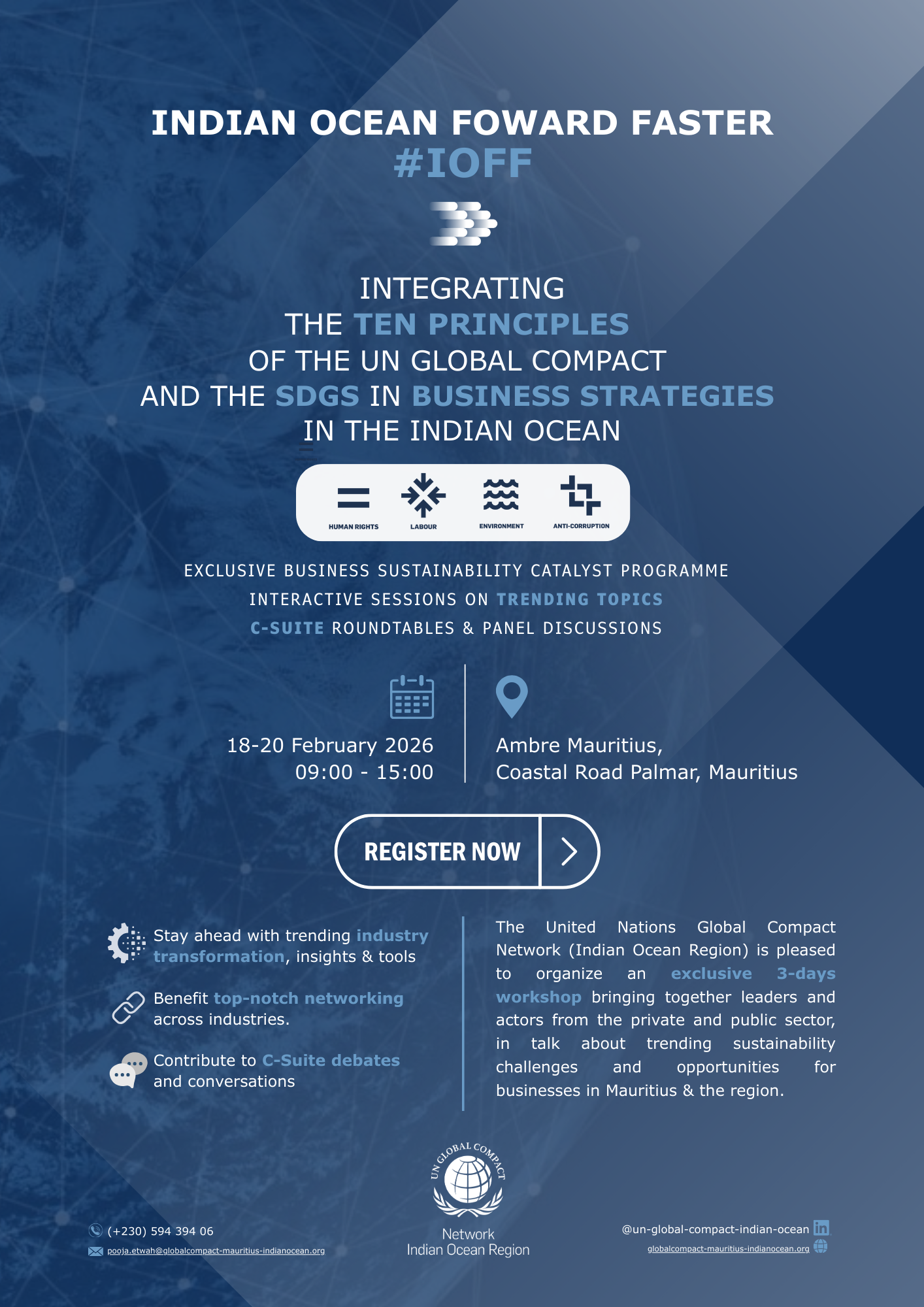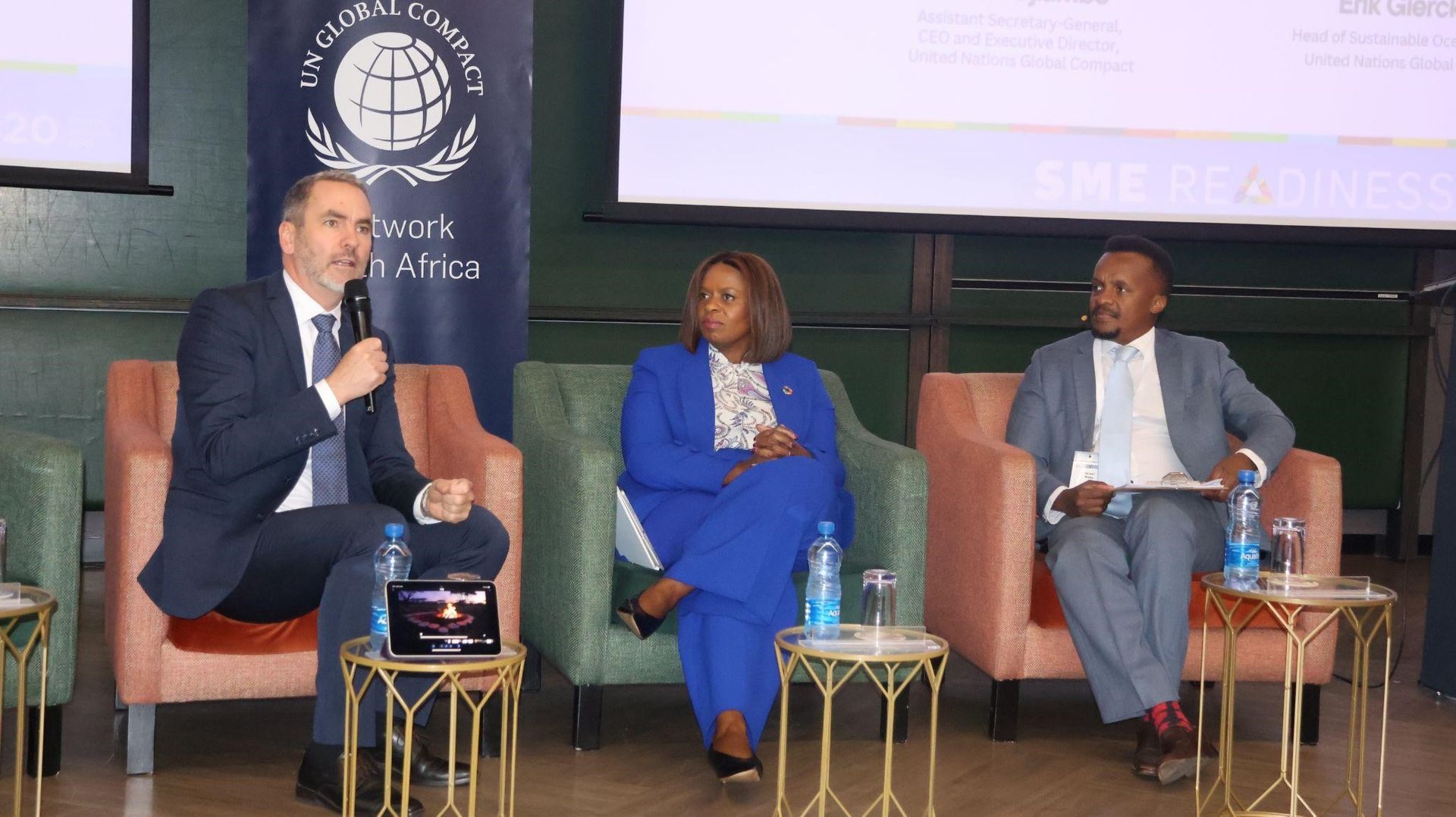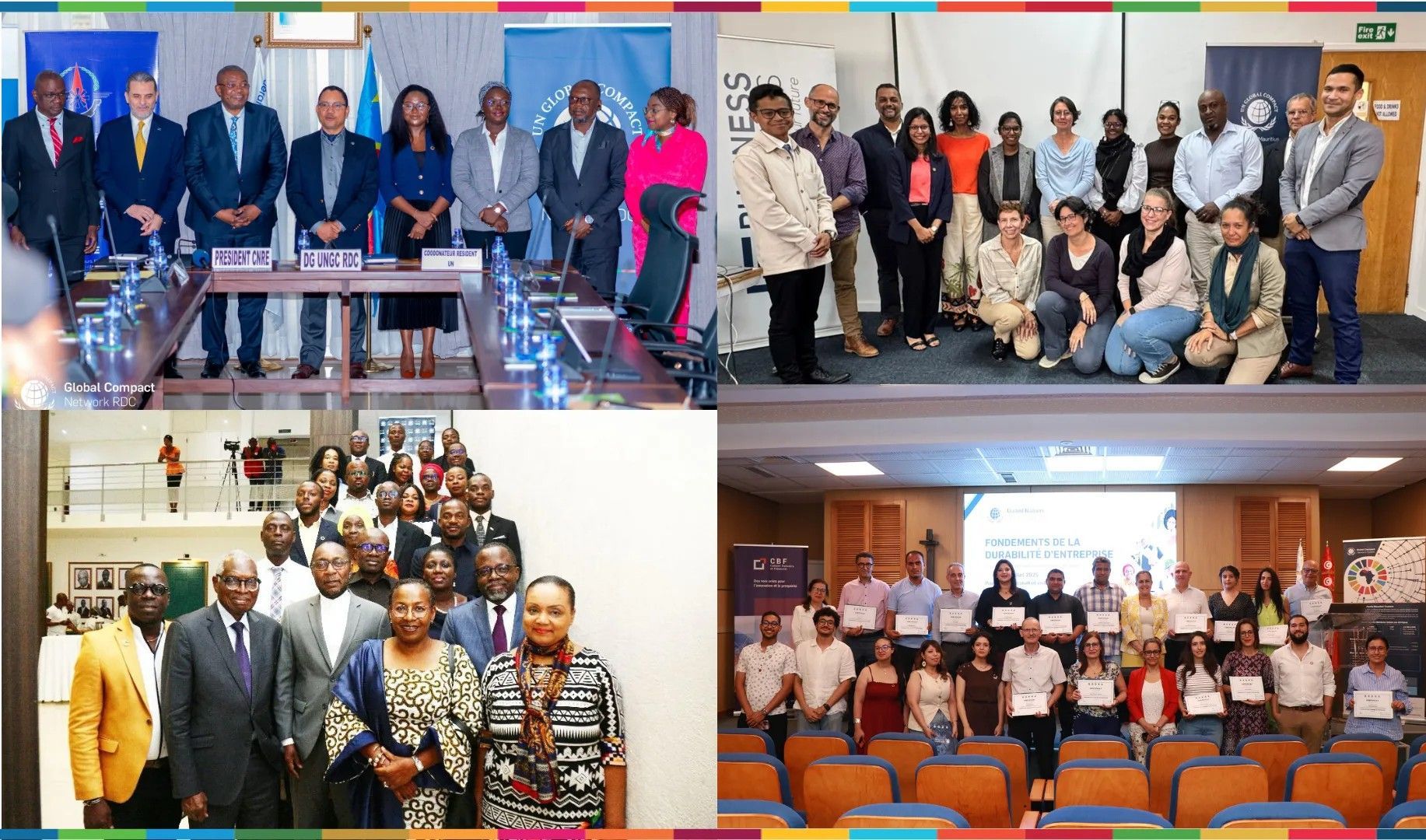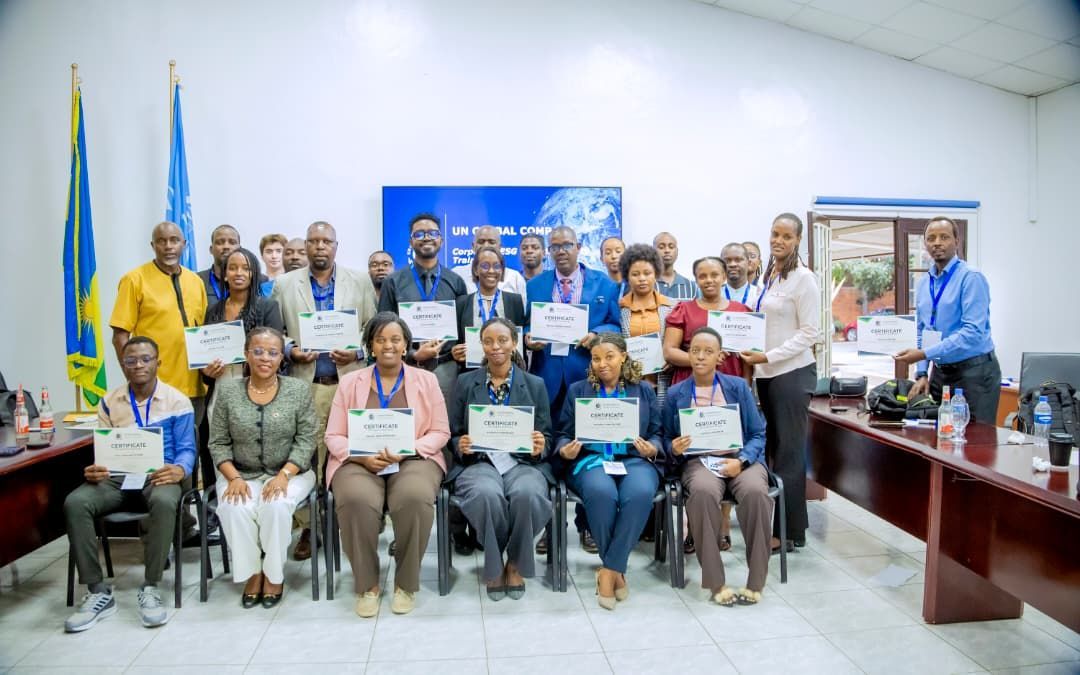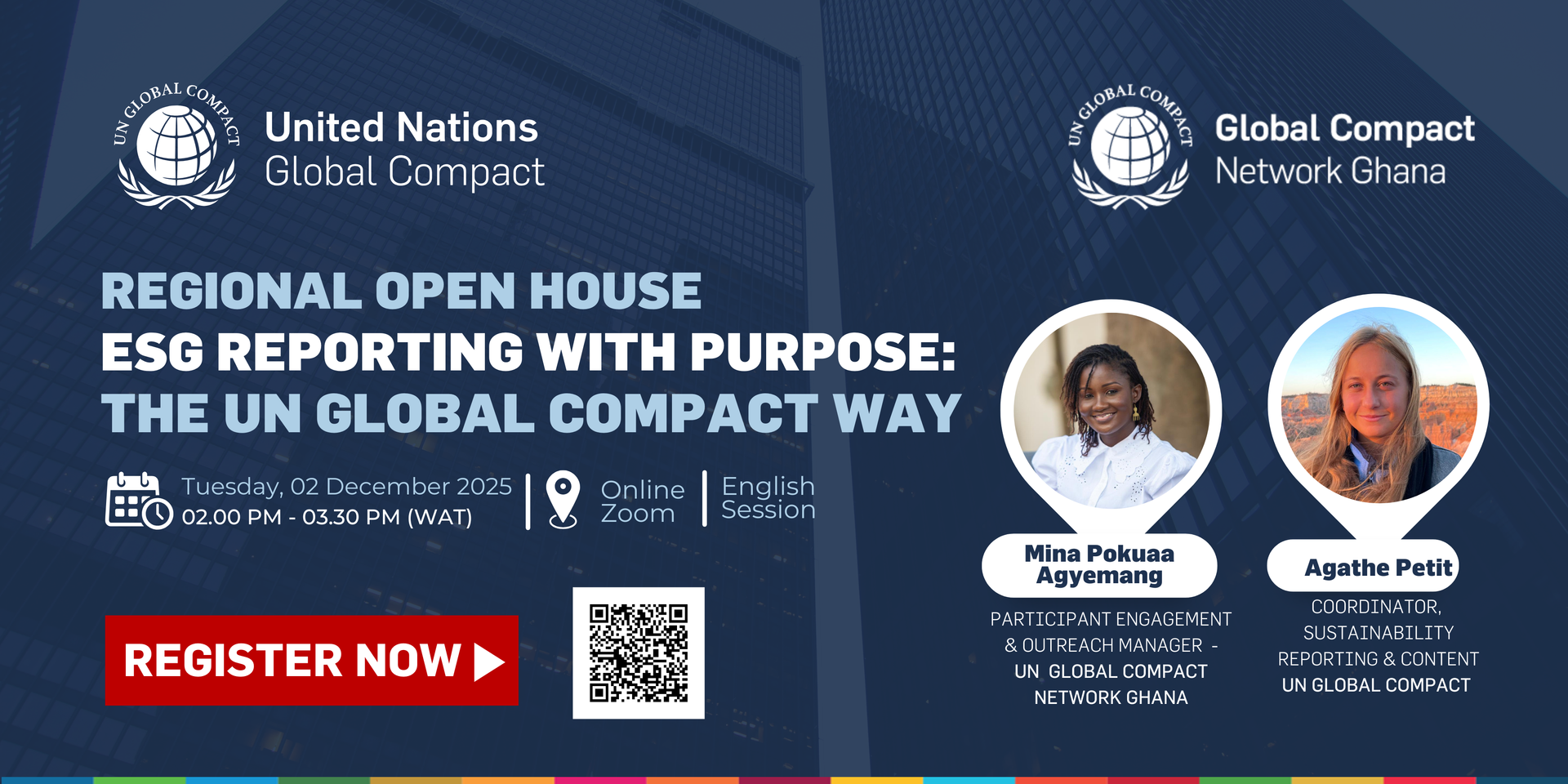Ring the Bell for Gender Equality
UN Global Compact Networks across Africa call for stakeholders to accelerate progress on gender equality by investing in women.
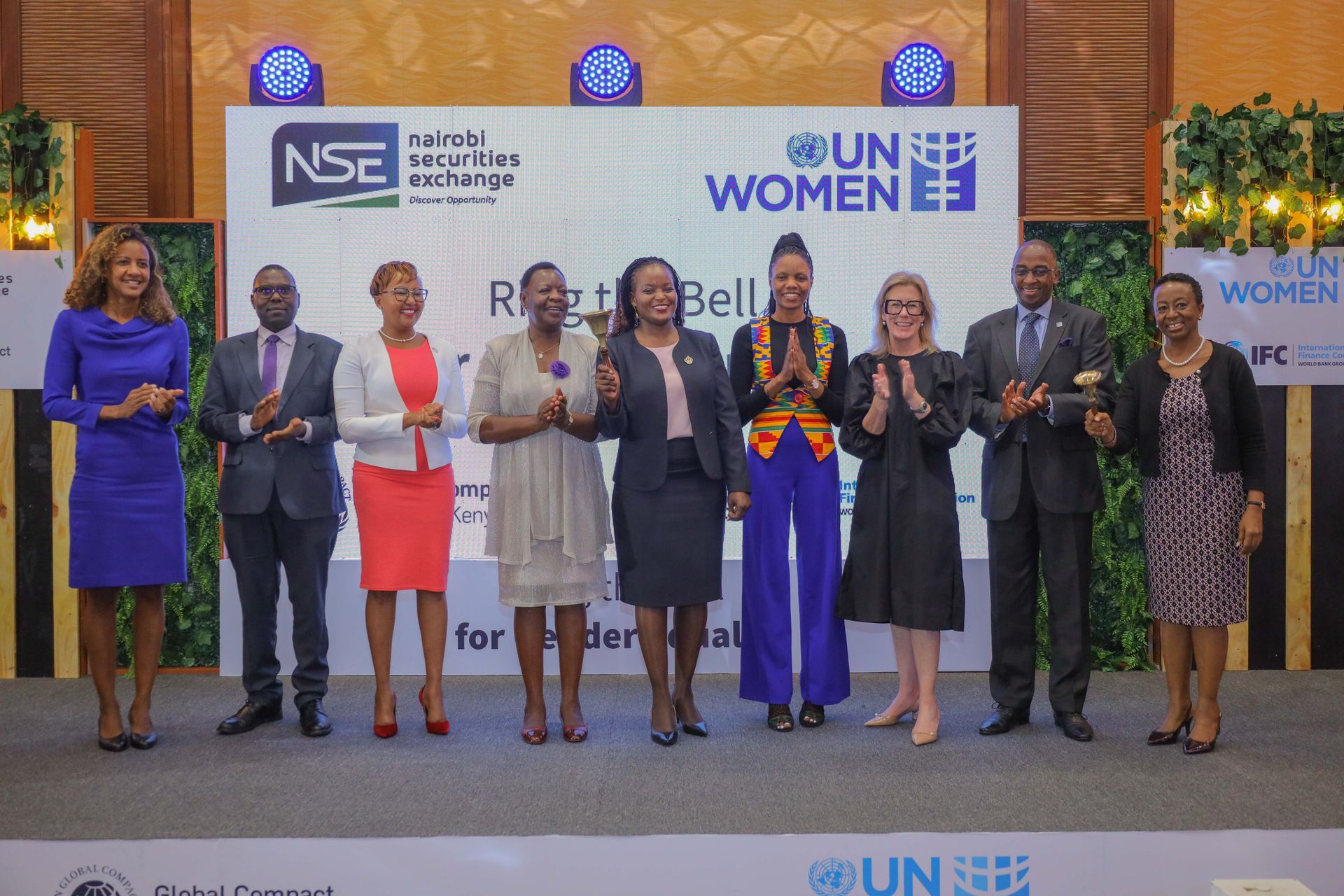
UN Global Compact's 'Ring the Bell' initiative reverberated across various African countries, advocating fervently for gender equity in workplaces. From Nigeria to South Africa to Tanzania, the initiative galvanized stakeholders to collectively strive for a future where women are empowered, valued, and afforded equal opportunities. Each event served as a platform for impassioned discussions, insightful reflections, and concrete commitments towards achieving sustainable progress.
In Nigeria, the 10th annual 'Ring the Bell for Gender Equality/Closing Gong' ceremony convened at the Nigerian Exchange Group (NGX), marking International Women’s Day under the theme “Invest in Women: Accelerate Progress.” The event underscored the imperative of empowering women for a more sustainable and prosperous future. Oluwasoromidayo George, Chair of the UN Global Compact Network Nigeria Board, emphasized the urgent need to close the gender gap, highlighting its hindrance to achieving SDG 5—Gender Equality—by 2030. Despite acknowledging the compelling business case for gender equality, George lamented the stagnant progress on women’s rights, calling upon the private sector to drive gender equality forward.
Naomi Nwokolo, Executive Director of the UN Global Compact Network Nigeria, shed light on Gender Lens Investing (GLI) as a catalyst for advancing gender equality and informed investment decisions. She stressed the neglect faced by women and girls in Nigeria, with only two out of the Goal 5 indicators performing near target, necessitating the strengthening of gender lens investing through impact funds for inclusive and sustainable development. Notably, World Bank data revealed a significant gender gap in economic participation in Nigeria, with only about 40% of adult women engaged in the labor force compared to over 70% of men. Addressing the gender pay gap, which costs the global economy USD 160 trillion per year according to UN estimates, emerged as a critical step towards unlocking opportunities for advancement across the SDGs.
Key speakers at the Nigerian event included prominent figures from various sectors, such as Dr. Irene Robinson-Ayanwale, Divisional Head of Business Support Services/General Counsel of Nigerian Exchange Limited; Olubukanla Rufai, Director, Lagos Zone, Securities and Exchange Commission; and Amina Mohammed, Director of NGX Regulation Limited, among others. Their collective presence underscored the commitment of diverse stakeholders towards fostering gender equality and inclusivity in Nigerian businesses.
Similarly, in South Africa, the UN Global Compact Network South Africa partnered with the Johannesburg Stock Exchange to host the 10th Annual 'Ring the Bell for Gender Equality' event. Held under the theme “Invest in Women: Accelerate Progress,” the event aimed to spotlight the pivotal role of the private sector in advancing gender equality to achieve the Sustainable Development Goals (SDGs). Dr. Achieng Ojwang, Executive Director of the UN Global Compact Network South Africa, emphasized the need for businesses to integrate the Women’s Empowerment Principles into their strategies and practices, urging greater strides towards gender equality.
Dineo Lioma, an entrepreneur and innovator, delivered a keynote address emphasizing the importance of investing in women entrepreneurs and addressing the disparities in access to financial resources. Lioma highlighted the significant barriers faced by women entrepreneurs, including limited access to capital and inadequate mentoring, underscoring the imperative for concerted efforts to dismantle such obstacles. The event also showcased the Target Gender Equality Accelerator program, offering companies opportunities to deepen their implementation of the Women’s Empowerment Principles and contribute meaningfully to SDG 5.5 and SDG 8.5.
Meanwhile, in Tanzania, the 'Ring the Bell for Gender Equality' event, co-hosted by the Global Compact Network Tanzania, UN Women, Dar Es Salaam Stock Exchange (DSE), and International Finance Corporation (IFC), unfolded with enthusiasm and purpose. Against the backdrop of International Women's Day and the theme “Invest in Women: Accelerate Progress,” the event epitomized a collective commitment to advancing gender equality and women's empowerment. Mr. Simon Shayo, Chair of the Global Compact Network Tanzania Board, emphasized that investing in women not only aligns with moral and ethical imperatives but also catalyzes economic, social, and political progress towards a more just and equitable world.
Marsha Macatta-Yambi, Executive Director of the Global Compact Network Tanzania, rallied stakeholders to action, urging corporations and organizations to make bold commitments towards gender equality. The event, held in Dar es Salaam, brought together businesses, policymakers, and advocates dedicated to championing women's rights and fostering inclusive growth. As Tanzania celebrated its eighth year of partnership for the 'Ring the Bell for Gender Equality' initiative, it showcased a growing momentum towards gender parity and inclusivity in the workplace.
The event in Dar es Salaam featured a distinguished lineup of speakers, including executives from co-organizing organizations such as the Dar es Salaam Stock Exchange, UN Women, International Finance Corporation, and the Global Compact Network Tanzania. Hon Aristide Mbwasi, representing the Minister of the President’s Office, Planning and Investing, emphasized gender equality as a fundamental human right crucial for achieving a prosperous and sustainable future for all. The event facilitated a dynamic panel discussion, offering diverse perspectives on the importance of supporting and investing in women across various sectors.
Panelists, including representatives from the International Finance Corporation, NMB Bank, WiLDAF Tanzania, and A-TO-Z Textile Mills Limited, engaged in thought-provoking conversations on accelerating progress towards gender equality. The panel discussion served as a catalyst for meaningful dialogue, inspiring attendees to take concrete actions towards empowering women and creating more inclusive societies. In her closing remarks, Marsha Macatta-Yambi urged continued momentum and active participation in the journey towards gender equality, emphasizing the need to break down barriers and create an environment where equality for all is a reality.
Global Compact Network Kenya also joined hundreds of partners worldwide in commemorating International Women's Day with the annual Ring the Bell for Gender Equality Ceremony. This year's event focused on empowering women economically to foster inclusive and equitable societies and also raised awareness and highlighted the significant role the private sector can play in advancing Gender Equality.
Harriette Chiggai, President’s Women Rights Advisor who was the chief guest challenged stakeholders to go beyond and advance gender issues even as we celebrate International Women’s Day. Global Compact Network Program Manager Esther Yongo representing Executive Director Judy Njino called on the stakeholders to move forward, faster by investing in women and reflect on their commitments, rethink their actions, reconsider collaborations and partnerships.
Ms. Yongo challenged the forum to revise the targets they have set for themselves and align them with new global statistics and targets for accelerated progress. The occasion also witnessed two companies Digimatt Solutions Limited and UN Global Compact participant Lady Askary publicly sign the Women Empowerment Principles taking a bold commitment towards entrenching gender equality in their respective companies.
Across Africa, the 'Ring the Bell for Gender Equality' events symbolized a collective determination to advance gender equity, foster inclusive workplaces, and accelerate progress towards achieving the Sustainable Development Goals. As stakeholders from diverse backgrounds converged to champion women's rights and empowerment, their shared commitment underscored the transformative potential of inclusive policies, practices, and partnerships in building a more equitable and prosperous future for all.
